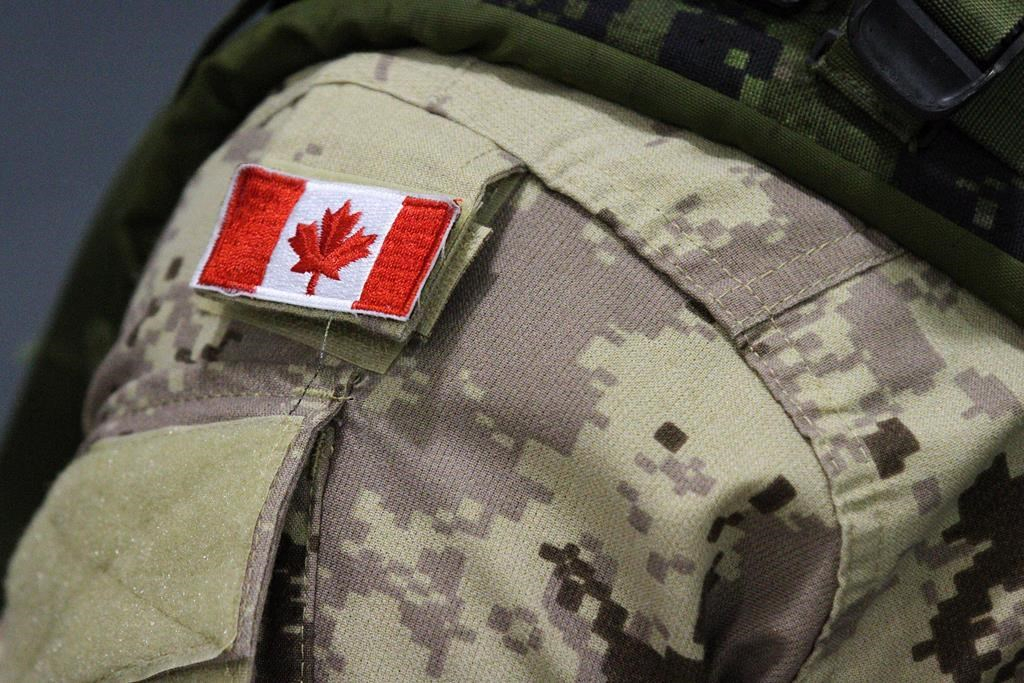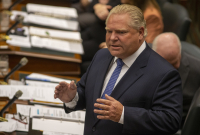Support strong Canadian climate journalism for 2025
While the federal government is pressing ahead with plans to buy billions of dollars worth of much-needed equipment for the Canadian Armed Forces, the Department of National Defence's top procurement official says COVID-19 is further slowing down some already delayed purchases.
The past six months have seen a number of major milestones for Canada's beleaguered military procurement system, including last week's unveiling of the first of 16 new military search-and-rescue planes after 16 years of delays and controversy.
Procurement officials are also now reviewing three bids that were received from fighter-jet makers at the end of July as Canada inches closer to selecting a replacement for the aging CF-18s following more than a decade of political mismanagement.
The list of recent successes also includes Halifax-based Irving Shipbuilding having delivered the first of six new Arctic offshore patrol vessels in late July, while progress has been made on a number of other files, such as the long-overdue purchase of new engineering vehicles for the Army.
Yet some of those milestones would have been achieved earlier had it not been for COVID-19. And Troy Crosby, the Defence Department's assistant deputy minister of materiel, acknowledges many other projects are being affected as well.
That includes the more than 100 military procurements — roughly half of them dealing with new equipment and the rest focused on building new infrastructure on Canadian Forces bases across the country — that were listed as already delayed before the pandemic hit.
"COVID didn't speed anything up," Crosby said in an interview with The Canadian Press. "I think everybody would understand that that's going to have some impact. And exactly what that impact is difficult to tell right now."
Delays in military procurements can have several impacts. In some cases such the CF-18s, the Canadian Armed Forces is being forced to keep using equipment that was supposed to have been retired years ago. In others, delays drive up the cost of the new purchases due to inflation.
The projects most likely to be delayed due to COVID-19 are those in production, Crosby said. Examples include the construction of new naval ships by Irving and Seaspan ULC in Vancouver, which have had to adopt physical distancing and other COVID-19 measures at their shipyards.
"For the projects that are at a stage where the work is office-based ... once we got over that initial hump as everybody had to as we moved toward a remote-work posture, the work continued," said Crosby.
"If you're in a shipyard and you're trying to advance the production of a ship given all of the physical distancing requirements and the health and safety considerations, that's challenging."
Crosby has previously argued much of the frustration around military procurement is the result of unrealistic expectations born of a lack of understanding and appreciation for how the system — which is dealing with more projects than at any time in recent history — actually works.
COVID-19 has also prompted speculation the Liberal government could start cutting back on its promise, unveiled in 2017, to spend $553 billion on the military over the next 20 years. Defence Minister Harjit Sajjan told The Canadian Press earlier this month that the funding is "secure."
Asked about the spending plan — which is contained in the Liberals' defence policy and known as Strong, Secure, Engaged — Crosby said: "Strong Secure Engaged continues to be our focus and it laid out a program of work and we're trying to get that program of work delivered.
"It's been that way right through this whole COVID situation. That hasn't changed anything. ... The people in the materiel group, the people we're working with across government, we're all seized with the program forward."
This report by The Canadian Press was first published Sept. 28, 2020.





Comments